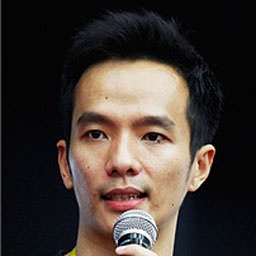Malaysian Open Source Community Meetup
Opera is not an open source company, but we contribute to the community in other ways, such as releasing Opera Dragonfly under a BSD licence. The thought of sharing with the open source community what we are doing crossed my mind. The opportunity came when Azizat, the coordinator or the MYOSS, contacted me. Finally, I got the chance to talk (to the open source guys) about another kind of openness: Open Standards.
Taking que from David's wonderful OpenWeb presentation slides from Japan, I decided to talk about the Open Standards, the OpenWeb platform and Opera's work in Open the Web.
The audience was very informed with many of the things that I presented, such as SVG and SMIL. I enjoyed seeing head nods while I was presenting. The Malaysian audience was also very participative, especially when it comes to OpenWeb challenges
. The audience were quick to ask that despite all the good effort, how do we achieve a massive uptake of these technologies?
Browsers have the responsibility to bring native support to many of the open standard technologies, but it will also depend on things such as good authoring tools, proper branding and closer collaboration for these open standards to go beyond just standards. A point taken home from the audience regarding the proprietary platform Flash is that even though SVG might be equally up to the task, it is Adobe who has been able to come up with a good authoring tool for people who want to use is. Will tools like Inkscape enjoy wider usage as a strong authoring tool that we see more SVG in the future? We certainly hope so.
Since someone forgot to bring the projector, we had about 30 odd people sharing two laptops. During the demo time, we had 20 people sharing each laptop. The demos we looked at included HMTL 5, Canvas, SVG, CSS 3 and the video element. The audience were particularly interested in CSS 3 and its ability to style stuff simply by a line of code, such as text-shadow and opacity. An audience member asked if they should start coding to HTML 5 now. It is possible now, if you want to try out new things.
Next up, we looked at why sites break. We took a peek at challenges faced by South Korea and India. South Korea is battling to be more open since if you are not a Windows user you can’t bank online. This has to do with encryption relying on an ActiveX control. As for India, some Indian sites require downloading EOT fonts to view the page. EOT is only supported in Windows. These are legacy issues that are complicated to change. Yet, change we need to achieve. The bottom line is, users should be able to see the same Web regardless of their browser, platform and device of choice.
The question and answer session was certainly entertaining. Questions asked includes When will HTML 5 be finalised?
and how does the engineering cycle works in Opera?
. The audience was certainly an active lot and it was a very two-way session. People also shared their thoughts on Opera’s latest earth-shattering release on 1st April; they are loving Facial Gestures.
Here is the OpenWeb Slides in PDF and Open Standards demos. To run the video examples, you'll need to use Opera's video build. You'll probably like to use the Opera Show feature to play the demos in presentation mode. You can do this by viewing the index.html in fullscreen mode.
